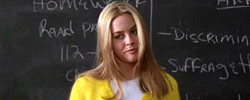Reviews
Howard Zieff
USA , 1980
Credits
Review by Rumsey Taylor
Posted on 03 July 2006
Source Warner Home Video VHS
Categories Chick Flicks
On her wedding night Judy Benjamin is hastily seduced by her husband before she exits the bathroom. She satisfies his lust on the tile floor, his climax shortly thereafter accompanied by a heart attack. After the funeral, she sits solemnly in a room full of wedding presents, clutching on to a brand new food processor. As she shortly remits, Judy has done nothing wrong to warrant such isolation. She is in her thirties, this is her second (failed) marriage, and you get the impression that the basis of her regret is not in the loss of her husband, but the threat of having to repeat the routine she has twice failed to maintain satisfactorily.
Judy Benjamin is living another’s life, satisfying a generic and grossly old-fashioned feminine ideal: to impress your parents, to please your husband, and to hinder one’s own comforts and preferences in a lifetime of comfortable submission. It takes two marriages, one death, and the burden of an early mid-life crisis to reverse her backward thinking.
And thus the film’s comedic premise becomes manifest: she joins the army. This is an effort to change her surroundings, or to reduce the memory of her perpetual hardships, but her privilege colors her perception of exactly how she is to benefit from the experience. Judy is promised exotic places of travel—even yachts. She enlists excitedly in this prospect of exoticism, and shortly realizes how ill-founded her recruiter’s promise was.
This premise will have you think that Judy is entrapped in the US Army, fooled by promises of its comfort and travel, and instead imposed a responsibility and physical modulation—it’s exactly what she doesn’t want, and exactly what she needs. And she knows this. There is a telling scene in the first third, in which — after days of complaints and recalcitrant behavior — her captain permits her leave. Her parents (until this point unaware of her enlistment) arrive to drive her home. She sees their disappointment in how she has rejected the life of privilege they have given her. Their concern is, however, symptomatic of their disappointment in how she has rejected an old-fashioned feminine ideal—the one they themselves exemplify in their patently emotionless marriage. (This is not to mention how obscenely masculine her decision to join the army is.) With little indecision, she says goodbye to them, and returns to her dorm.
Judy Benjamin is essentially the same character Goldie Hawn inhabits in each film she has been in: she’s so staunchly privileged that it is with a formidable amount of maintenance that her nascent virtues are eschewed for a more practical existence. In her first day at boot camp in Biloxi, Mississippi, she follows her squad in a dress and heels. This is ostensibly one of many slapstick scenarios that populate Private Benjamin, but it’s also demonstrative of her difficulty in perceiving anything outside of her narrow view of what a widow in her 30s is to do with her life. The movie prescribes a series of these scenarios—that’s the inherent concept, a string of them until the best comedy is exhausted. Imagine the dramatics of a Looney Toon in which the Road Runner fails to outrun Wile E. Coyote—it’s roughly equivalent to Benjamin displaying any instinct that strays from her inherent tendency for conformity, and it is precisely that she does so that is this film’s responsible triumph.
Of course, in its hastily developed depiction here, the Army is about conformity; it’s just not the sort of baptism Judy’s anticipating. So, in turn and after seeing her disappointed parents away, Judy excels in boot camp, only on her own idiosyncratic terms. It’s precisely the same scenario employed in the first third of Full Metal Jacket. But whereas marksmanship becomes Private Pyle’s exceptional asset in Kubrick’s film, Private Benjamin is bestowed a self-assuredness she has never demonstrated in her life before. Upon graduating from boot camp, she is sent to Belgium, where her submissive romantics come in to play once again.
Private Benjamin’s second half is a very different film from its first. No longer is Benjamin’s conditioning the forefront, she is at this point challenged to apply her learnings. It is an abrupt change in tone comparable to that of The Graduate once Benjamin ends his affair with Mrs. Robinson. The comedy now more transparent, the desperation that motivates Judy becomes apparent, and she is more appropriately seen as a stubborn and courageous woman instead of the catalyst for slapstick the premise would have you think.
The conclusive action in Belgium is Judy’s relationship with (and subsequent engagement to) Henri, a suave Frenchman. He is attractive, romantic, and far more capable than any of her previous lovers (resulting in her first pair of orgasms in their first night together). Again in love, Judy’s tendency to configure herself according to the preferences of those in her life becomes again manifested. Specifically, Henri is fond of golden blonde hair, and after learning of this, Judy dyes hers to suit him. Studying herself in a mirror (in an action that mirrors exactly what she was doing prior to her fatal wedding night tryst), her frown is irreversible. And because she is engaged to this man, she is again seemingly entrapped.
All of this conditioning — two and possibly three husbands, a pair of verbally dissatisfied parents, and boot camp — is required to motivate Judy Benjamin’s self-revision, as her ingrained behavior as a JAP is so pronounced it necessitates a formidable ballast. But crucially, this revision doesn’t conclude as a saccharine female fantasy: the closing image finds Judy, in her bride’s gown, walking alone into the horizon, liberated — truly — for the first time in her life.
More Chick Flicks
-

The Truth About Cats & Dogs
1996 -

Say Anything
1989 -

Gas Food Lodging
1992 -

Pretty Woman
1990 -

Walking and Talking
1996 -

Mean Girls
2004 -

Fried Green Tomatoes
1991 -

Private Benjamin
1980 -

Clueless
1995 -

Erin Brockovich
2000 -

The Bridges of Madison County
1995 -

Bridget Jones’s Diary
2001 -

Working Girl
1988 -

Bend It Like Beckham
2002 -

Bring It On
2000 -

Ghost
1990 -

Truly Madly Deeply
1991 -

The Last of the Mohicans
1992
We don’t do comments anymore, but you may contact us here or find us on Twitter or Facebook.



